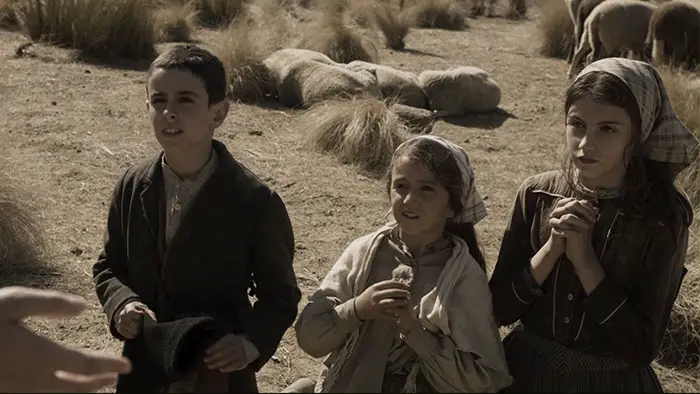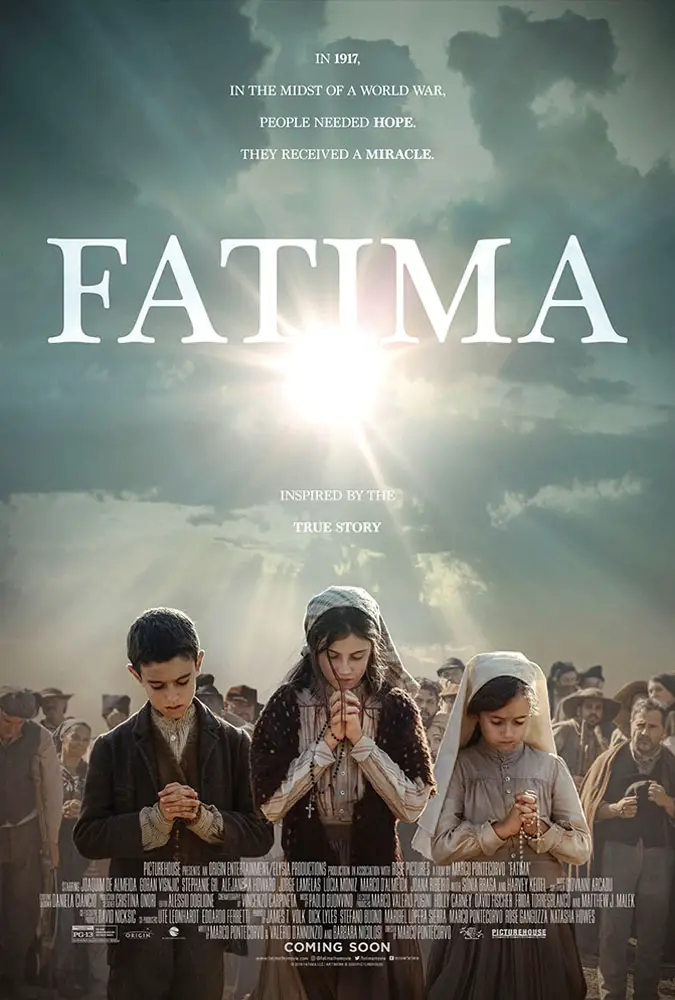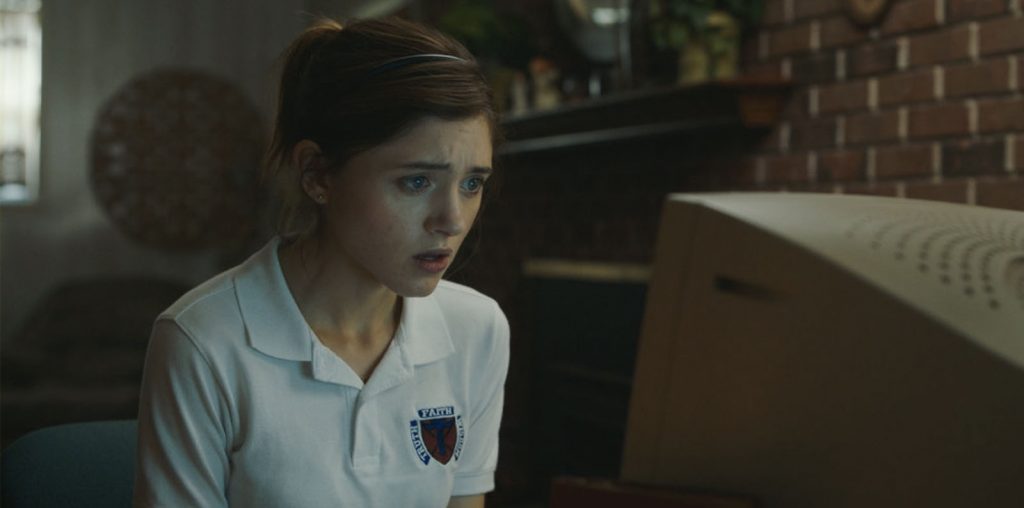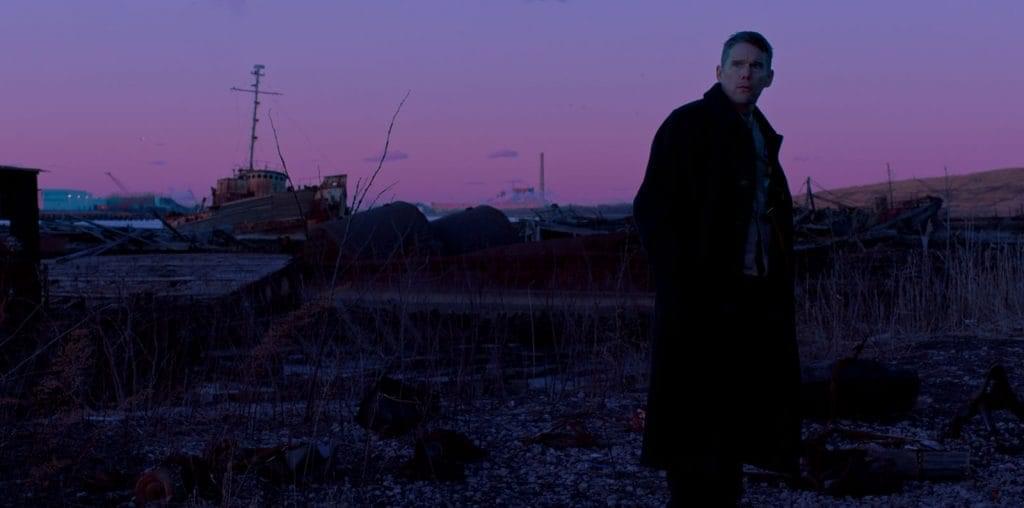
In such a project, a little ambiguity would go a long way. Pontecorvo makes his own beliefs quite clear from the start, vacuuming any semblance of ambivalence out of the project. At one point, our young heroine even visits a heavily CGI-d Hell. “That was hell,” the Virgin Mary helpfully explains, “where the sinners’ poor souls go. If we do not stop insulting God, there will be a war worse than this one.” Like, nuclear war? Damn – I mean, darn (was that an insult?) – lil’ Lucia, you got your work cut out for ya.

“…all so mushy and predictable.”
The stilted dialogue seems to have been written by someone with a less-than-firm grasp of the English language (in this case, three such scribes). The fact that it’s repetitive doesn’t help matters. “You must pray often and suffer greatly,” Mary insists, over and over again. I have no idea why or how that’s a soothing statement, but the soft light glowing around her, in addition to the swelling score, sure suggests that it must be.
Fatima has excellent production design. A lot of care went into getting the period details right. There’s some beautiful cinematography and decent performances all around. It’s just all so mushy and predictable. Faith vs. science, tragedy testing one’s faith – those themes have been explored before, more enticingly. Pontecorvo turns a fascinating bit of history into a by-the-numbers affair, and that may be Fatima’s greatest sin.

"…an honest-to-God account of a historical event, light on flourishes but heavy on symbolism."


